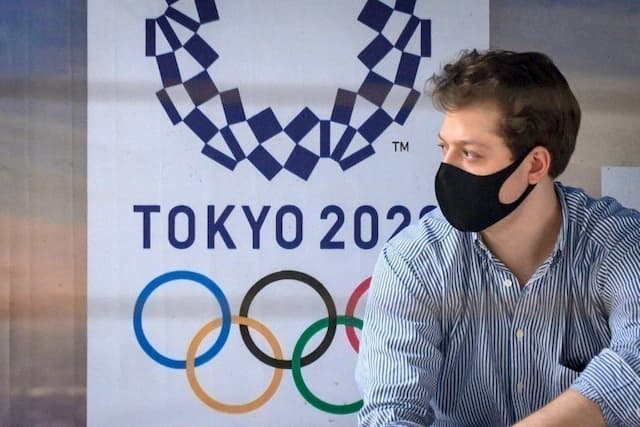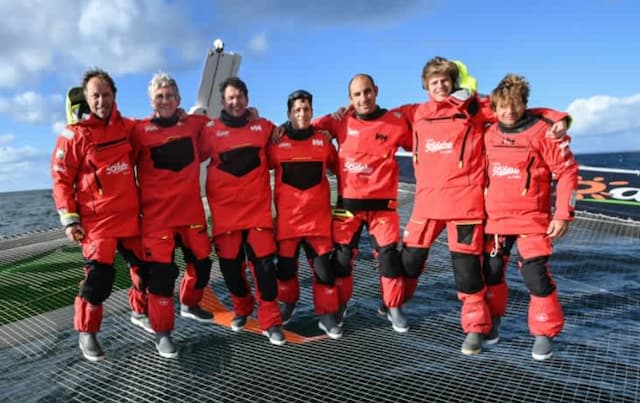Coronavirus: Four Months Before the Tokyo Olympics, the IOC Stays the Course

As more and more international competitions announce their postponement, coronavirus forces, the Tokyo Olympic Games remain scheduled. For the time being.
Faced with growing scepticism and calls to postpone the Tokyo Olympic Games scheduled for this summer, the International Olympic Committee (IOC ) resists, believing on Tuesday 17 March 2020 “no need to take radical decisions”, just as UEFA postponed one year Euro football.
Despite the pandemic born in Asia and which is inexorably spreading, the IOC which convened a telephone meeting of its Executive Commission on Tuesday believes that “any speculation at this stage would be counterproductive”, with reference to a possible postponement or cancellation.
The IOC stays the course
At the very moment when UEFA took the historic decision to postpone the Euro football tournament scheduled for June and July 2020 by one year, the IOC, therefore, does not deviate from its course despite the doubts that are rising in Japan and the call for several athletes to postpone the Olympic Games, scheduled from July 24 to August 9.
The IOC once again said “confident that the numerous measures taken by the authorities around the world will help to contain the situation regarding the Covid-19 virus”.
Communiqué du Comité International Olympique (CIO) concernant les Jeux Olympiques de Tokyo 2020 https://t.co/iwsOV8HUnH
— Jeux Olympiques (@jeuxolympiques) March 17, 2020
And even if the financial stake of a postponement or a cancellation is enormous, the IOC assures it: its decision “will not be dictated by financial interests” because, thanks to its policies and assurances in terms of management of risks, it will “in any case be able to continue its operations and fulfil its mission which is to organize the Olympic Games”.
But as many countries declare containment of their populations and the virus has already killed more than 7,000 people around the world, voices are beginning to rise to ask for a postponement.
Decathlon world record holder Kévin Mayer, who can claim an Olympic title in Tokyo, declared in the newspaper L’Equipe that he “would really like them to postpone the Games, not to cancel them not “.

“Of stubbornness”
In Japan, a poll published Monday by the news agency Kyodo shows that 69.9% of those questioned do not believe that Tokyo will be able to host the Games as planned.
Another survey of the public television channel NHK carried out from March 6 to 9, pointed out that 45% of the Japanese are now opposed to keeping the Olympic Games as planned, and 40% for.
“It’s an obstinacy on the part of the IOC, judges an official of international sport. Faced with an unprecedented health threat, the myth of defending values is collapsing ”.
For another framework of international sport, “the IOC is waiting because it believes that there is no urgency to make its decision. And expects the situation to ease within a few weeks. ”
But for the time being, the Olympic movement is faced with the thorny problem of qualifications, as many events that deliver sesame to Tokyo have been postponed or cancelled. Latest in date, the European boxing qualification tournament organized in London and which could not be completed on Monday.
Only “57%” of the 11,000 or so athletes who must participate are already qualified for the Olympic Games, underlines the authority.

Flexible qualifications
For the 43% of remaining places, the IOC assured on Tuesday that it would work with international federations in order to make “the practical modifications necessary to their respective qualification systems”.
Several measures were presented to international federations on Tuesday during a telephone meeting. Another meeting is scheduled for Wednesday this time with the National Olympic Committees and representatives of the athletes.
Tuesday’s meeting “lasted two hours. The IOC presented its measures and we were able to ask our questions, ”told AFP an official of the International Swimming Federation (Fina). “We are satisfied with the announcements and we will follow the recommendations,” he added.
For athletes who are not yet qualified, the IOC has indicated that the only competent federations will be able to use the results of “existing and scheduled qualification events when these ensure equitable access to all athletes and teams”.
In addition, the necessary adaptations to the qualification systems “will be based on actual results, for example the classification of the international federation and past results”.
Finally, an increase in the quota of athletes will be considered “on a case-by-case basis in exceptional circumstances, with the assistance of the Tokyo 2020 organizing committee,” added the IOC.
Enjoyed this? Get the week’s top France stories
One email every Sunday. Unsubscribe anytime.


